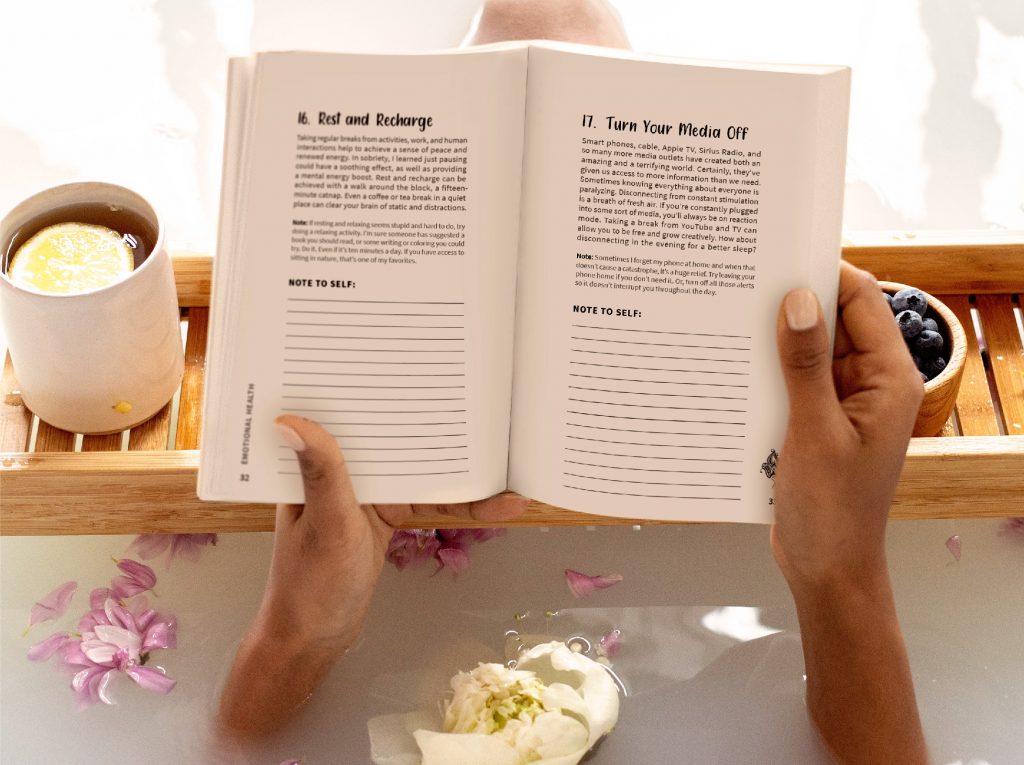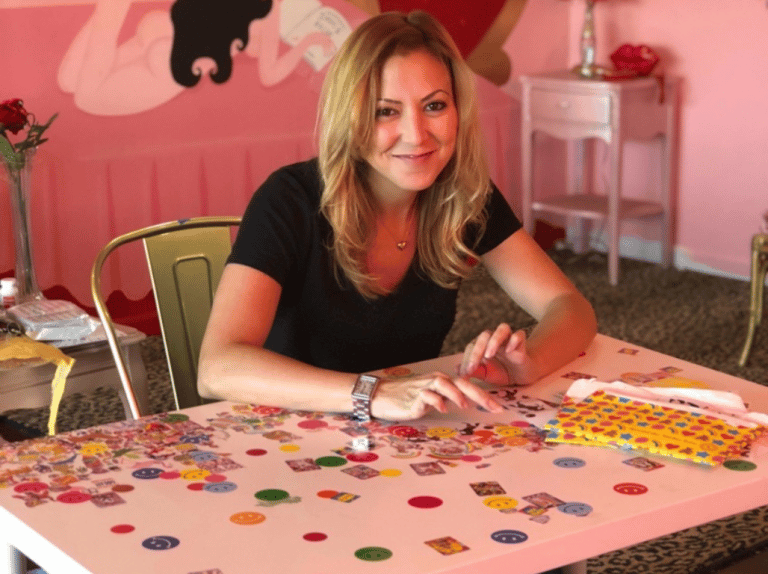Life Is Tricky So It Helps To Know How To Be Okay When You’re Not Okay
How to be okay is something I had to learn. I was not okay for a long time, which is why I feel qualified to write this article. Not being okay can involve many things. I struggled with sobriety for a while, struggled in relationships, and struggled with finding my purpose and how to manage it once I did. Sometimes we’re not okay because a relationship comes to an end, or a job, or a phase of life. Whatever it is, we will all deal with not being okay from time to time. The trick is knowing what to do when it happens.
How To Be Okay: What’s The Secret
It kind of depends on the ways you’re not OK. Mental health and wellness are not a one size fits all kind of thing and you should always consult a professional. Also, remember that there is no clear timeline for healing and recovery so don’t give yourself too many timetables. Because I’ve been through this, I’ll speak to what worked for me.
How To Be Okay: Assemble the “You’re going to be alright” team
If there are people who get through mental health or life crises without the help of friends, family, professionals, and others, I do not know them. Not all at the same time, that would be ridiculous, but over the years I saw: an addiction specialist, a psychopharmacologist, a life coach, and a therapist who practiced EMDR.
I also had sponsors in multiple 12-step programs and friends in those programs who were of endless support. Not everyone is going to be able to be there for you when you’re struggling – I lost friends in those years – I don’t blame them.
Find the people who are going to be able to handle this, whether it’s friends, siblings, other family members, or professionals and support groups. I have paid people to listen to me and help guide me through most of my life. I’ve got no shame in my game over it. My thinking gets me into trouble.
How To Be Okay: Who and what are your Why’s
It has always been helpful to me when I feel low to remember my whys. There are people who depend on me and need me and that’s important. There are people who have told me my work has helped them and that is another heartbeat for me. I believe what I do makes a difference to people who really need it. That matters to me. When I can’t be there for myself, I usually can be there for you. When it’s easier to think of who and why I help–I go with that.
How To Be Okay: One of the fastest tracks to feeling OK is to be of service
I’ve been of service in recovery from the beginning. I became a recovery advocate, I made documentaries about recovery, I went into prisons, I did it all. It helped me turn my biggest deficit into my biggest asset. Instead of being ashamed about my recovery, I slowly became proud. I also learned how to pass it on and help other people. Nothing fills that God-sized hole inside like helping other people.
If you’re struggling with grief, sobriety or heartbreak, help someone or something. Put your focus on being good and connecting with other people. You will be amazed by what happens. Prefer animals. Go help a rescue. They need people to visit those animals and walk them. some of them never get out! Helping others be OK will help you be OK.
How To Be Okay: Get real help if you need it
Sometimes we’re so used to taking care of ourselves, that we think we can handle anything. Pull up your bootstraps! Struggle through it! No, you don’t have to do that. If you cry every day, if you feel fed up with life or relationships or family or even yourself and you don’t know what to do anymore and don’t want to live, seek professional help. That is a level of not being OK that needs attention.
Hear me right now when I say this, “You have the right to be happy and healthy no matter what the consequences of that will be.” If there are people who don’t want to see you get better, talk to new people who can give you a fresh perspective. Check out a variety of online therapists or listings for therapists or find a 12-step recovery group, talk to your priest but find the help you need. And, know this. I did. It wasn’t easy but it was OK, and I’m OK.
How To Be Okay: Find your peaceful place
I was born and raised in Manhattan. It is not my happy place. I love NY, I’m grateful for that experience, nowhere will ever equal New York City. I can’t live there today. It’s too noisy, too busy, not enough nature, and it causes me anxiety to get around town. I realize not everyone can pick up and move but everyone can get outside and walk. Start with that. That’s what I started with – in the East Village in NYC in Winter.
A therapist ordered me outside every day, even if meant walking around the block. Today, I hike around the hills of Southern California so my nature has evolved but I did move my life to a place where I feel soothed instead of harrassed. It didn’t happen overnight though. All of this healing takes time but finding a place to be in that can promote your wellness will help.
How To Be Okay: Eat Healthy and Exercise
The fastest way to shock your body into a natural “feel better” is get it healthy and pumping endorphins and foods that promote mental health and physical wellness. No one knows better than me that when you feel like crap emotionally, it’s EASY to get into eating (or not eating). Depression is famous for keeping people in bed. I’m no exception. The mandatory walks around the block in winter were ordered for me during the only time in my recovery when I’ve been medicated for suicidal depression.
At this stage of my recovery, many happy healthy years in, I feel OK to talk about that time in my life. It was hard and I was dealing with a variety of tragedies. The sadness was overwhelming. While it seems like a little thing, keeping myself above water by focusing on getting a little exercise and not just putting sugar into my body was really important.
How To Be Okay: I got spiritual
At some point in my recovery, I wanted to find a deeper spirituality. I struggled with meditation and prayer, activities essential to a healthy long-term recovery. I struggled to turn my life over to another source, which as a person in recovery I need. I also had some despair at times about my life not turning out the way I envisioned.
I had always felt drawn to ideas from Buddhism, so when someone who practiced came into my life, I dove down that rabbit hole. What does that look like and do for me? I chant every day, which acts as prayer and a form of breathwork for me. I read Buddhist magazines and have study groups and district meetings about those readings.
It acts as another community, which provides support, spirituality, connection, and thought about the world and how to be a better person. I’m not saying, go become a Buddhist – it’s not a small commitment.
Find something that helps give you the perspective you need in life, something that encourages you to be better, and work towards something bigger than yourself. Also, something that lets you be of service to other people. The more you can make it about anything other than yourself, the better.
There are so many other things you can do to help you be OK through the Not OK’s but starting with anything in this list will help. Don’t feel overwhelmed, even taking the tiniest step in the right direction is a good thing.
I wrote 100 Tips For Growing Up because it was a compilation of the best advice I received in my 20 years of recovery but broken down into tiny tips and steps. One step, one stair at a time. That’s how we move up and forward.
Check out my book 100
Tips For Growing Up

More Articles To Read
Mental Health And Spirituality
Growing Up In Recovery After You Get Sober
There Is Hope For An Addict’s Mom





















